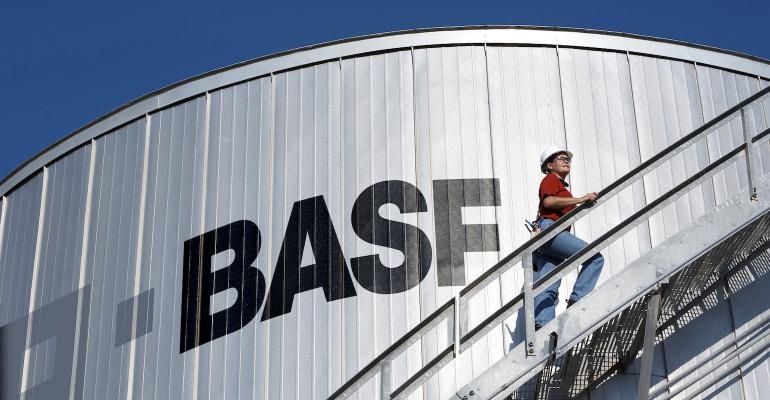BASF continues to perform well in third quarter of 2021
 |
| BASF reported solid growth in the third quarter |
At €19.67 billion ($22.92 billion), sales were €5.86 billion ($6.83 billion) higher than in the corresponding quarter a year ago. Higher prices in all segments, especially in chemicals, surface technologies, and materials, were the primary factors for this growth. It was also due to a significant increase in volumes in almost all segments.
Compared with Q3/2020, earnings before interest and taxes (EBIT) before special items rose by €1.29 billion ($1.5 billion) to €1.87 billion ($2.18 billion). This was mainly driven by the significantly higher EBIT before special items in the chemicals segment.
“This enabled us to continue to grow profitably,” said Dr. Martin Brudermüller, BASF’s chairman of the board of executive directors, who presented the Q3 results together with CFO Dr. Hans-Ulrich Engel. “Compared with the third quarter of the previous year, we increased prices by 36 per cent and volumes by 6 per cent."
“With strong earnings contributions from the chemicals and materials segments, the earnings mix in Q3/2021 was comparable with Q2/2021,” added Brudermüller. “Our downstream businesses are still confronted with further rising raw material, energy, and freight costs. Price increases in most downstream businesses could only partially offset these higher costs.”
EBIT amounted to €1.82 billion ($2.12 billion), considerably above the figure of minus €2.64 billion ($3.1 billion) reported in the same quarter of the previous year. This figure includes income from integral companies accounted for using the equity method, which rose by €144 million ($167 million) to €200 million ($233), due largely to the higher earnings contribution from BASF-YPC Company Ltd., Nanjing, China.
Compared with Q3/2020, earnings before interest, taxes, depreciation and amortisation and special items (EBITDA before special items) increased by €1.23 billion ($1.43 billion) to €2.77 billion ($3.22 billion) and EBITDA rose €1.69 billion ($1.96 billion) to €2.73 billion ($3.18 billion).
The global economy continued to recover in Q3/2021 following the sharp decline in economic activity in the previous year. However, growth momentum slowed compared with the previous quarter due to supply bottlenecks in many value chains of the manufacturing sector. Further pandemic-related disruptions in production and logistics in Asia intensified the scarcity of precursors worldwide.
The global automotive industry was especially affected by a chip shortage that led to significant drops in production. In addition, power cuts in some provinces of China had a negative impact on production, especially in energy-intensive industries. Global demand for consumables and consumer durables remained stable despite the burden of rising energy prices on companies as well as on end-users.
Based on the BASF Group’s sustained good business performance and the anticipated continuation of solid demand, especially in the chemicals and materials segments, the forecast for the 2021 business year was raised in accordance with market expectations.
What the stars mean:
★ Poor ★ ★ Promising ★★★ Good ★★★★ Very good ★★★★★ Exceptional
 Tag:
Tag:
Related Contents
Latest News
More News
- Masan Consumer names new deputy CEO to drive foods and beverages growth (February 23, 2026 | 20:52)
- Myriad risks ahead, but ones Vietnam can confront (February 20, 2026 | 15:02)
- Vietnam making the leap into AI and semiconductors (February 20, 2026 | 09:37)
- Funding must be activated for semiconductor success (February 20, 2026 | 09:20)
- Resilience as new benchmark for smarter infrastructure (February 19, 2026 | 20:35)
- A golden time to shine within ASEAN (February 19, 2026 | 20:22)
- Vietnam’s pivotal year for advancing sustainability (February 19, 2026 | 08:44)
- Strengthening the core role of industry and trade (February 19, 2026 | 08:35)
- Future orientations for healthcare improvements (February 19, 2026 | 08:29)
- Infrastructure orientations suitable for a new chapter (February 19, 2026 | 08:15)





















 Mobile Version
Mobile Version